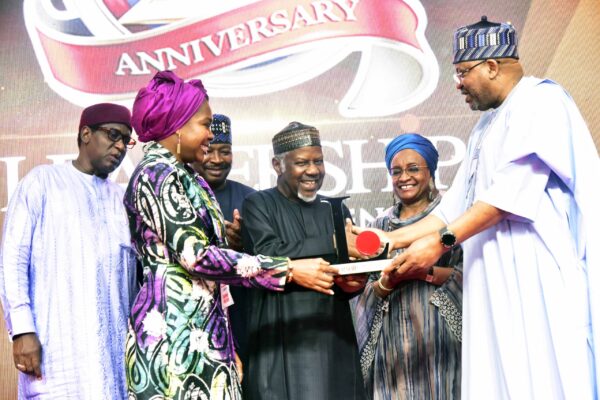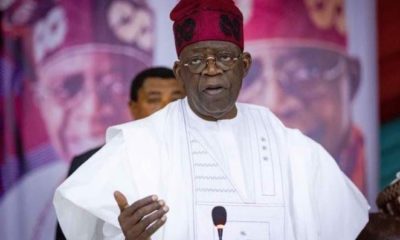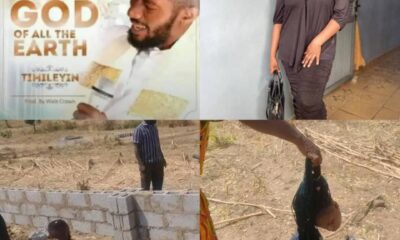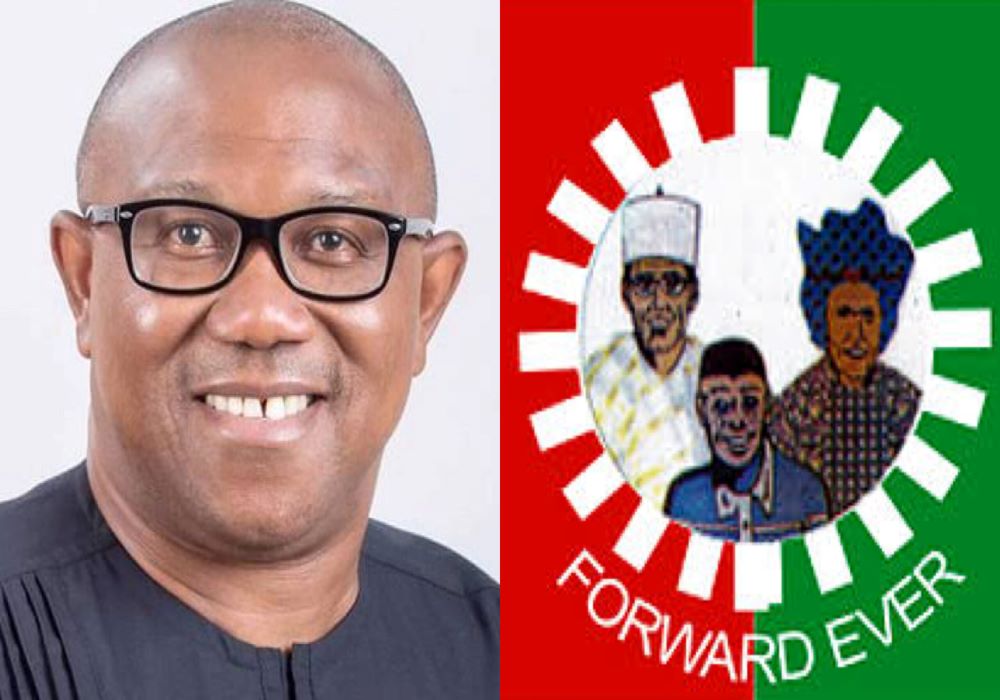Business
8 Tips On How To Save Money In 2023

Saving money is a crucial aspect of personal finance, especially in Nigeria, where the cost of living can be high.
Whether you are saving up for a big purchase, building an emergency fund, or planning for retirement, it’s essential to adopt money-saving habits. Here are ten practical ways to save money in Nigeria:
CREATE A BUDGET
Start by creating a monthly budget that outlines your income and expenses. This will help you identify areas where you can cut back and prioritize your spending.
For example, if you realize that you’re spending too much on data usage in streaming unnecessary videos online, you can cut back on that expense and redirect the money towards your savings goals.
REDUCE FOOD EXPENSES
Eating out can be expensive, especially in Nigeria, where the cost of food can be high. Instead, cook meals at home and buy in bulk to save money on groceries.
For example, if you’re used to eating out 2 times in a day either during workdays or not, you can start packing a homemade lunch to work and also cook meals at home to save money.
USE PUBLIC TRANSPORTATION
Using public transportation or carpooling can save you money on fuel, maintenance, and parking. If you have a car, you can consider using it only when necessary or using fuel-efficient options like taking a bike. For example, if you usually drive to work, you can explore public transportation options like buses sometimes.
SAVE ON ELECTRICITY
Electricity bills can be a significant expense in Nigeria. To save money, turn off lights and electronics when not in use, use energy-efficient bulbs, and unplug appliances when not in use. You can also consider investing in solar power to reduce your electricity bill.
SHOP SMARTLY
Shop around for the best deals on big-ticket items like electronics, appliances, and furniture. Buy in bulk when possible. You can also take advantage of seasonal sales to get discounts on items. For example, you can compare prices of items on various online stores and choose the store with the best deal.
AVOID IMPULSE BUYING
Impulse buying can quickly drain your bank account. To avoid it, wait a few days to decide if you really need the item. You can also create a list of items you need before going to the store to avoid buying unnecessary items. For example, if you see a pair of shoes you like at the store, you can wait for a few days to see if you really need them.
INVEST IN FIXED DEPOSITS
Consider investing in fixed deposits with banks that offer competitive interest rates. Fixed deposits are low-risk investments that can provide a steady stream of income. For example, you can invest a portion of your savings in a fixed deposit with a bank that offers a good interest rate.
FIND SIDE HUSTLES
Finding ways to earn extra income can help you achieve your financial goals faster. You can take advantage of your skills and find ways to earn extra income through side hustles such as freelance writing, tutoring, or selling goods online. For example, if you have a skill like graphic design, you can offer freelance services to businesses or individuals in need of design services.
By adopting these habits, you can save money and achieve your financial goals in Nigeria. Remember, it’s not about depriving yourself of things
Business
ECCIMA Applauds Dangote’s Impact On Nigeria’s Economy

The Enugu Chamber of Commerce, Industries, Mines, and Agriculture (ECCIMA) has applauded the contributions of the Pan African Conglomerate, Dangote Industries Limited (DIL) to the growth of Nigeria’s economy and general Arica’s development.
Deputy President of the ECCIMA, Eric Chime, made the assertion at Dangote Group’s Special Day at the ongoing 2025 Enugu International Trade Fair.
He opined that the Group through its various investments has contributed to the growth and development of the domestic economy.
Welcoming dignitaries, trade exhibitors, industry stakeholders, and the general public to the event, Chime, hailed the longstanding partnership between the ECCIMA and Dangote Group, commending the company’s role as a consistent sponsor and supporter of the trade fair over the years.
“We are highly delighted to welcome Dangote Plc once again to their special day at the ongoing trade fair. Their continued presence and commitment have been instrumental to the success of this annual gathering,” Chime stated.
“Dangote’s contribution to the Nigerian economy is enormous spanning virtually every sector, from cement and food production to their recent game-changing entry into the oil and gas sector through the Dangote Refinery,” he added.
ALSO READ: JUST IN: FEC Moves For Total, Continual Naira-For-Crude Deal
He emphasized that the impact of the refinery, especially in regulating petroleum product prices, deserves national recognition and support.
“We call on the Federal Government to continue to support Dangote Group in its efforts to put smiles on the faces of Nigerians,” he urged.
Chime further praised the President of the DIL, Aliko Dangote, for his visionary leadership and relentless drive for innovation, noting that the Dangote business empire represents a perfect example of what entrepreneurial excellence can achieve through research, resilience, and dedication.
On his part, Deputy Regional Director, Southeast, Dangote Cement Plc, Ayirioritse Okerentie, expressed gratitude to the ECCIMA for providing a viable platform to engage stakeholders and show case Dangote Group’s contributions to Nigeria’s economic development.
He said that the theme of the Fair, “Developing Nigeria’s Industrial Sector/SMEs for Economic Advancement & Global Recognition” speaks directly to the core mission of Dangote Group.
Okerentie said, “As Africa’s largest indigenous manufacturing conglomerate, we are focused on Production, Prosperity, Power, and Pride. We believe the industrial sector, and by extension SMEs, can play a transformative role in job creation, import substitution, and overall economic advancement. The industrial/manufacturing sector has the capacity to impact significantly on the economy especially in the creation of jobs, provision of goods, reduction in imports of finished products and adding of value to our raw materials. It is generally accepted that a nation’s economic wellbeing is largely dependent on the industrial/manufacturing sector.
“The industrial/manufacturing sector is labour intensive, could create millions of both direct and indirect employments for people of diverse skills such as administrators, accountants, engineers, technicians, marketing and sales among others. It can also create indirect employment for supply chain actors in other sectors of the economy such as raw materials suppliers, logistics and transportation, farmers, and miners.”
According to Okerentie, companies that want to be ahead of competition, must invest in innovation, research and development. Therefore, developing Nigeria industrial sector requires massive investment in technology, adoption of best in-class global practices. This is the best way for products from Nigeria to gain global recognition. When your products are of global standards, global recognition becomes easy.
He noted that the Dangote Petroleum Refinery, the conglomerate’s recent flagship project has exported refined petroleum products such as aviation fuel, Premium Motor Spirit (PMS), automotive gas oil, naphtha to many African, European, American and Asian markets. These products, he stated, conform to the Euro V specifications.
Business
Leadership Bestows Person Of The Year Award On Dangote

Nigeria’s Leadership Newspapers have named the President of the Dangote Group, Aliko Dangote, as the Person of the Year.
The honour was bestowed upon him at the 17th edition of the Leadership Annual Conference and Awards on Tuesday at the Presidential Villa, Abuja.
On the occasion, Alh Dangote expressed the view that a collaboration between the public and the private sector would help resolve Nigeria’s economic conundrum.
According to him, the duo of public and private sectors must work together to tackle Nigeria’s socio-economic and political challenges.
Alh Dangote, who’s Africa’s wealthiest person, was represented by his Special Adviser, Engr Mansur Ahmed who collected the award on his behalf.
ALSO READ: Okpebholo Assures Edo Will Fully Utilize Quota In Army
He said, “On behalf of the award recipients and stakeholders gathered here, I would like to assure all Nigerians of our commitment to continue doing everything we can to collectively make Nigeria a better place for the benefit of the present and future generations.”
On the need for collaboration between the public and private sectors, he opined that: “Given the apocalyptic developments currently unfolding in the global economic arena, it is imperative that leading stakeholders from all sectors of every economy must close ranks and collaborate to advance the interest of their nation.”
He thanked the Leadership Newspapers for considering him for such a lofty award, adding that the recognition has inspired him to do more for his country.
The theme for this year’s Awards is: Challenges and Opportunities in Nigeria’s Fiscal Federalism, and the keynote address was delivered by Vice President Kashim Shettima, who was represented by Dr. Aliyu Umar Modibbo.
The Leadership Person of the Year Award is coming in the wake of numerous other recognitions.
Recall that on November 14, 2011, the Nigerian Government conferred on Aliko Dangote the Grand Commander of the Order of the Niger (GCON), becoming the first person outside government functionaries to bag the honour.
In 2013, he was conferred with the highest national honour in the Republic of Benin, the Grand Commander of the National Order of the Republic of Benin.
Similarly, in 2027, he was awarded the Officer of the Congolese Order of Merit.
In August 2022, Dangote was conferred with the Commander of the Order of Merit of Niger award by the then President of the Republic of Niger, Mohamed Bazoum in Niamey, in appreciation for his services rendered to the Republic of Niger and as well as a tribute to his business acumen and philanthropy.
In 2024, he was conferred with the prestigious award of Commander of the National Order of the Lion, by President Macky Sall of the Republic of Senegal, for his commitment to economic growth and sustainable development across the continent.
In April 2014, TIME Magazine listed him among its 100 ‘Most Influential People in the World.
For six consecutive years, 2013 2014, 2015, 2016, 2017, 2018 Forbes listed him as the ‘Most Powerful Man in Africa’ alongside the Egyptian President Abdel Fatteh el Sisi.
He was Vanguard Personality of the Year in 2022 and The Guardian Man of the Year 2015.
In 2012 and 2024, the Daily Sun, Nigeria’s leading tabloid named him the Sun Man of the Year.
Business
Woodhall Capital Foundation Trains Nigeria’s Captains Of Industry

As business confidence in Nigeria rose to the highest level in 14 months signalling a rising demand for their goods and services, Woodhall Capital International Foundation (WCIF), a subsidiary of Woodhall Capital, a leading financial advisory firm, in partnership with Mentor Intro Africa, has commenced the training of a new generation of Captains of Industry through a-six-week intensive mentorship programme.
Speaking about the programme which commenced with forty shortlisted mentees on Friday March 5 at EbonyLive Studios, Victoria Island, Lagos, the President of Woodhall Capital, Mrs. Mojisola Hunponu-Wusu, noted, “We are very excited to bring together 40 Captains of Industry and share ideas and visions on how to build sustainable businesses in Nigeria. It’s been a wholesome experience from 9am to 3pm. It’s so heartwarming to have found Captains of Industry who are indigenous to Africa and others who are going global. We shared ideas on how exactly we can accomplish these, the peculiarities of doing business in Nigeria, and the possibilities of Africans building offices around the world. That’s what we have started on Friday.”
Reinforcing what the partnership means to her, the Founder of Mentor Intro Africa, Mrs. Fola Niyi-Duale, remarked, “What we set out to do is to bridge the gap between career professionals and those who have already walked the path. It means we created a structured virtual platform where experienced industry leaders can guide, support, and inspire professionals and entrepreneurs on their journey to greatness. This is big because it epitomizes impact and we’re leaving a legacy for people to see and enjoy a future that we may not even be a part of, but we have laid the foundation.”
ALSO READ: RMD’s Radio Voice Debuts In Lagos, Showcasing Nollywood’s Brilliance
Both partners reiterated that the mentorship is not for the optics and its impact upon completion would far-reaching.
One of the mentees, Co-founder/Chief Technical Officer, Blue Sands STEM LabsOveral, Kingsley Okechukwu, excitedly said, “I’m glad I got the opportunity to be part of this mentorship. Our first session reinforced the significance of visionary leadership, employee retention, continuous innovation, and strategic positioning in ensuring long-term business success.”
This collaboration between Mentor Intro Africa and Woodhall Capital Foundation brings together visionary leaders, seasoned professionals, and the next generation of changemakers in an empowering initiative designed to bridge mentorship with high-impact leadership.
Together, the partners aim to spotlight industry pioneers, foster meaningful dialogues, and create lasting impact across Africa’s business and professional landscape.





















